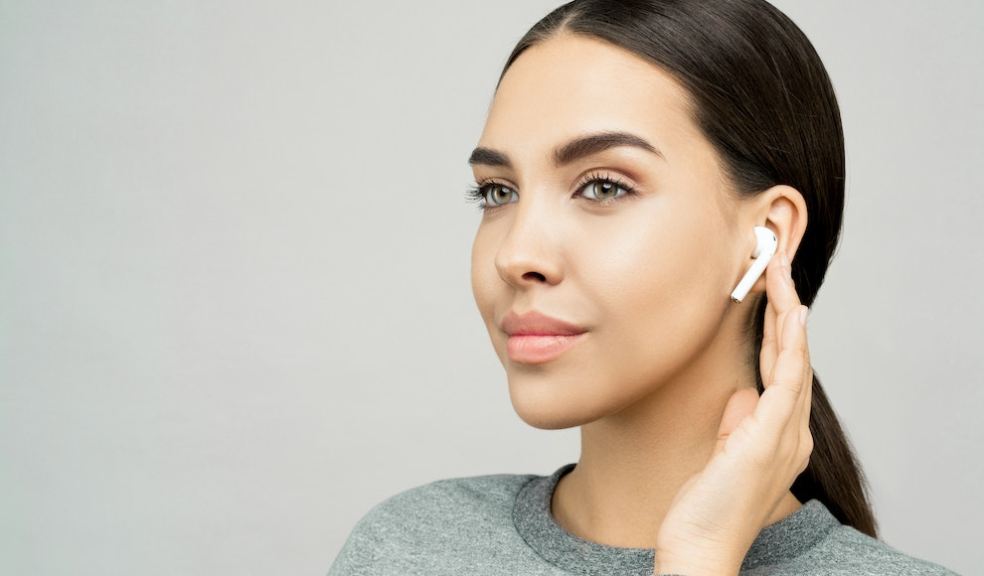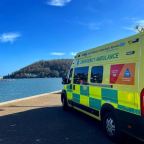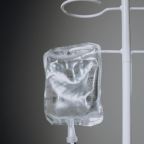
Everyday noise exposure is a major public health issue
EXPERTS are warning people across Plymouth that they risk permanent hearing damage if they don’t protect themselves against excessive noise exposure.
This is the main cause of preventable hearing impairment, with more than a third of all cases of hearing loss in industrialised nations.[i] It’s estimated that more than 11 million people are affected by some level of hearing loss in the UK alone.[ii]
Max Bennett, Hearcare Director at Specsavers Plymouth, says: “Hearing loss affects people of all ages and, unfortunately, the longer we leave hearing issues, the worse they can become.
“That’s why it is so important to look after your hearing, by wearing hearing protection when exposed to excessive noise, as well as having regular hearing checks, which can help identify and manage hearing loss symptoms more effectively and minimise their long-term impact.
“I would always recommend wearing hearing protection when you think your hearing may be affected. The general rule is, the higher the volume, the less time you should be exposed to it.
“Everyone’s hearing is different. Age-related hearing loss is the most common, but we’re seeing more noise-induced impairment. If you have any concerns about your hearing, don’t wait any longer. Expert advice and support are available at Specsavers.”
Some of the most common sources of everyday noise exposure include live music, listening through earphones or headphones, sporting events, night life, DIY noise or engine noise[iii] – which typically involve exposures in excess of 87dB, the level at which repeated or long exposure can cause permanent hearing damage.
However, these activities can sometimes involve exposures so far in excess of recommended safe levels, that damage can happen over relatively short periods of time.
In addition, noise exposure can damage more than just our hearing. Another major impact is sleep deprivation, which is linked to a wide range of health issues. According to the WHO, noise pollution can not only cause sleep disturbance, but also cause cardiovascular effects, poorer work and school performance, as well as hearing loss.[iv]
In response, Specsavers is urging Plymouth people to take action to prevent noise-induced hearing loss, by wearing hearing protection such as earplugs in noisy environments, and to get their hearing tested regularly, especially if they’ve noticed a change in their hearing.
Research released earlier this year by Specsavers revealed almost one in three (29%) adults believe that working in noisy environments such as factories, clubs or construction is to blame for their current hearing issues.[v] In a separate survey, they also found that two-thirds (65%) have never gone for a hearing test – despite 68% having experienced some symptoms which could indicate hearing difficulties.[vi]
Dr Rebecca Dewey, senior research fellow at the University of Nottingham, has teamed up with Specsavers to remind people to look after their hearing health.
Dr Dewey, who is currently undertaking a major study investigating the long-term effects of noise exposure, says: “Many people are frequently exposed to noise that’s dangerously loud, through both occupational and recreational activities, such as attending music events, using power tools, or even riding a motorbike, which could lead to temporary or even permanent hearing damage. Noise-induced hearing loss can significantly impact your quality of life – therefore excessive noise exposure is a serious public health issue that warrants more comprehensive investigation.”
Anyone worried about their hearing or who has experienced any hearing loss symptoms can visit their local Specsavers store to book a free hearing test. For more information visit https://www.specsavers.co.uk/hearing.
Top sources of everyday noise exposure3
- Live music (e.g., concerts, festivals)
- Nightlife (e.g., nightclubs, bars, pubs)
- Making music (e.g., playing/singing in a group, playing/DJing/singing solo)
- Listening though earphones and headphones
- DIY noise (e.g., power tools, powered gardening tools)
- Engine noise (e.g., motorbikes, motorsports, motorboats)
- Sport-related noise (e.g., sports matches, sailing)
- Cinema
To help Brits protect their hearing, Specsavers has released three top tips from Gordon Harrison, Chief Audiologist at Specsavers.
- Recognise dangerous noise levels
A large part of protecting your hearing is learning to recognise potentially dangerous noise levels and wear earplugs or noise-cancelling headphones wherever possible. Louder work environments that are likely to impact your hearing health include construction, agriculture, and manufacturing. Additionally, if you live in a big city, are close to a train line, busy main road or airport, you may be regularly exposed to very loud noises without even realising it. A guide to knowing if a sound or environment is too loud is if you have to speak up to be heard or can’t hear someone three feet away. If your hearing is dull or muffled after leaving a place or your ears hurt and /or are ringing, you may have damaged your hearing so you should book a hearing test to check.
- Protect your hearing
Some of the loudest places you can be are at festivals, clubs or gigs – and loud music can damage your ears, causing permanent hearing loss and tinnitus. Prolonged exposure to noise levels above 85 decibels are considered to be damaging, and music at clubs and concerts is often around 110dB[vii]. Stay away from the speakers and take regular breaks from the loudest areas. You could also wear earplugs with a filter, to protect your hearing. Additionally, when you’re watching or listening to TV or using mobile devices keep the volume at a comfortable level. Excessively loud volume on these devices can cause damage to your hearing but also impact others around you.
- Get a hearing test
Just as you take care of other areas of your health and wellness, it’s important to do the same for your hearing. Research from Specsavers showed that two-thirds (65%) have never gone for a routine hearing test – despite 68 per cent having experienced symptoms[viii], which could indicate hearing difficulties. A hearing test could help address any hearing difficulties, but also offer a baseline that can be compared and monitored during any future tests.
[i] https://www.nottingham.ac.uk/news/research-into-noise-exposure-may-shed-new-light-on-tinnitushttps://apps.who.int/iris/handle/10665/65390 / Deafness and hearing loss (who.int)
[ii] Facts about hearing loss and deafness - British Academy of Audiology |British Academy of Audiology (baaudiology.org)
[iii] Guest H, Dewey RS, Plack CJ, Couth S, Prendergast G, Bakay W, Hall DA. The Noise Exposure Structured Interview (NESI): An Instrument for the Comprehensive Estimation of Lifetime Noise Exposure. Trends Hear. 2018 Jan-Dec;22:2331216518803213. doi: 10.1177/2331216518803213. PMID: 30295145; PMCID: PMC6176535. https://www.ncbi.nlm.nih.gov/pmc/articles/PMC6176535/
[v] One Poll survey commissioned by Specsavers in February 2023 amongst 1,000 UK adults
[vi] One Poll survey commissioned by Specsavers in February 2023 amongst 1,000 UK adults .
[vii] Listen to music safely - RNID
[viii] OnePoll research commissioned for Specsavers in March 2023; 2,000 UK respondents.











